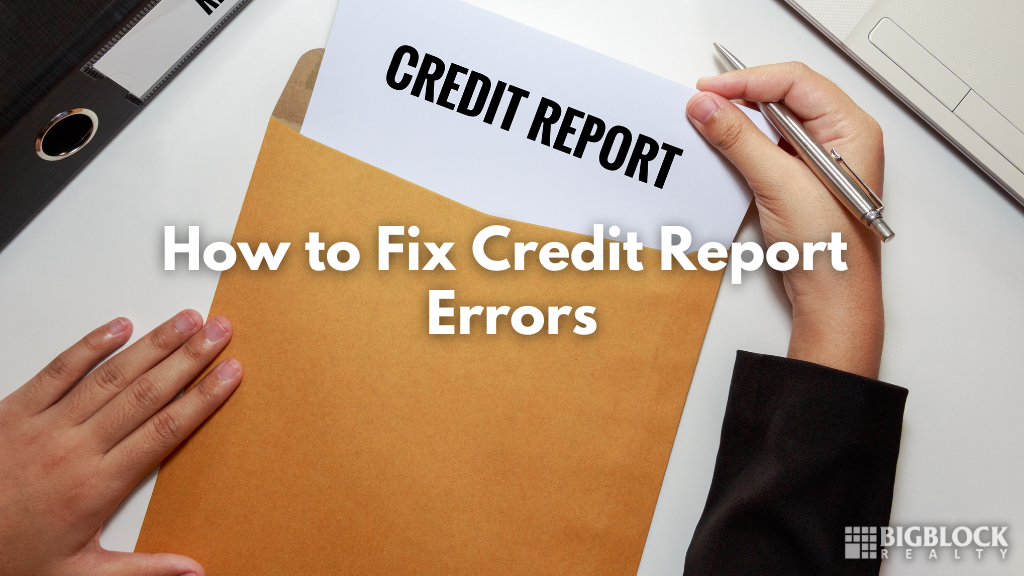 Your credit score is very important when lenders evaluate your loan applications for a home mortgage, car loan, business loan, and credit card. Learn how to fix credit report errors.
Your credit score is very important when lenders evaluate your loan applications for a home mortgage, car loan, business loan, and credit card. Learn how to fix credit report errors.
KEY TAKEAWAYS
- A credit report contains your credit history like bill payments, loans, credit card accounts, and current debts.
- A credit score rates a person regarding credit risk using a three-number system from 300 to 850.
- You should check your credit report regularly with the three major credit bureaus to make sure no errors exist which may lower your credit score.
- We list the many ways errors occur in credit reports including criminal identity theft.
- If an error in your credit file exists you have the right to file a claim disputing it with the credit bureaus.
- Correcting credit report errors often lead to a higher credit score making it easier to qualify for loans and credit with lower interest rates to save you money.
How to Fix Credit Report Errors
Sometimes credit reports contain errors that lower your score preventing you from getting loans. This is a fixable problem. But first, you need to find out if errors are in your credit reports.
What is a Credit Report?
Lenders of all types (auto, home, business, credit, banks, etc.) rely on credit reports to list your bill payment history, current debt, loans, and other financial information.
Credit reports also show where you live, work, and whether you’ve been arrested, sued, or filed for bankruptcy.
Lenders use the information in your credit reports to determine if they will approve your loan application or extend credit. Also, these reports help with determining at what interest rates lenders will charge you.
Likewise, potential landlords, employers, and insurers use credit reports to decide to do business with you or not. You never know who looks at your credit reports.
Credit Reporting Agencies (CRAs) collect all this information and maintain them in your credit reports. While all the information they collect may not be the same, CRAs are respected and must only contain accurate information. Yet, errors happen.
What is Your Credit Score?
Credit reports containing your entire bill payment history and other important information can take a few pages. Lenders want to save time without reading the entire credit report. Thus, a FICO Credit Score was created in 1989 by the Fair Isaac Corp. to summarize a credit report’s conclusion with a three-number rating. Nowadays, a FICO score and a credit score are used interchangeably.
Your credit score shows a number reflecting your credit risk. The factors which determine your credit score are:
- Outstanding balances;
- Payment history;
- Length of credit history;
- Types of credit accounts (car loans, credit cards, mortgages, etc.); and
- Applications for new credit accounts.
All this information is analyzed and calculated producing your credit score.
Credit score numbers range from 300 to 850. Here is a breakdown of which credit scores are bad to good according to Equifax:
- 670 and up is good resulting in consideration as an acceptable or low-risk borrower;
- 580 to 669 score is a “subprime borrower” meaning they are considered as difficult to qualify for the best loan terms (like lower interest rates); and
- Under 580 are considered “poor” credit making it very difficult to qualify for credit or a loan.
Why You Must Check Your Credit Report
CRA employees may type in inaccurate information into your credit report database. Or, mistake you for another person with a similar name, or make a simple error typing a social security number.
Sometimes, your credit report may contain information from another person with a poor credit history. Thus, one error may result in your denial of a loan, credit card, employment opportunity or to rent a property.
You need to periodically check your credit report to see if an error is on your report. According to the Federal Trade Commission (FTC), if you find one or more errors, you have the right to dispute the errors.
Understand How Credit Report Errors Occur
A study by the FTC revealed that 26% of the participants found at least one error in their credit report.
According to myFICO, most credit report errors happen when someone with the same name applies for a loan, credit, bankruptcy, or got arrested. This is a common mistake. If your name is Robert Smith or Bobby Smith or Bob Smith, imagine the many ways someone with the same name could end up in your credit report files.
The same goes with your address in a city with the same name in another state or a social security number one digit different from yours.
Reasons for credit card errors appearing in your credit report include:
- Technical mistakes by lenders or creditors who failed to include critical information in your file;
- Clerical error when typing information like your name or address from a hand-written application;
- Technical mistakes by credit bureaus like leaving out important credit accounts;
- Failure by department stores or other creditors who voluntarily provide information to credit bureaus and didn’t;
- Credit card or loan payments inadvertently applied to the wrong account;
- You voluntarily closed a credit account but it got reported in a way that makes it look like the creditor denied you further credit;
- Your former spouse’s debts show up in your credit report after the divorce;
- Older bad debts you paid off remain in your credit report; and
- Duplicate account error by a lender with double vision making it appear you have an extra account or higher debt.
GOT QUESTIONS?
Identity Theft Can Ruin Your Credit
Besides credit reporting errors, you could become a victim of a crime called Identity theft which occurs throughout the U.S. in high numbers.
According to Experian, identity theft occurs when someone steals your personal information to impersonate you without your permission. A thief can use your name and social security number to open new accounts to make purchases they never repay and commit other frauds.
These result in bad debts or mysterious accounts appearing in your file. That’s why banks, credit card companies, and police agencies warn about revealing your personal information online. Or, by email due to a “phishing” scam.
How do You Check for Credit Report Errors?
There are three major credit reporting agencies in the U.S. According to the USA.gov website, they are:
- Experian;
- Equifax; and
- TransUnion.
The U.S. government provides a free annual credit report from each credit reporting agency. Their website is: AnnualCreditReport.com
How to Fix Credit Report Errors
The FTC published an excellent guide on how to report errors to the credit bureaus.
According to the FTC, you should send letters to all three credit bureaus explaining the error. You should include copies of all documents supporting your claim.
More details about each error along with a request to delete the errors from your credit report file help your claim.
You will need to wait at least a month before re-checking your credit reports to see if the errors were deleted. If they are deleted, you need to send the updated credit reports to your lender and credit card issuers to update your files. Also, if you have pending loan or employment applications you should send them your updated credit reports.
Correcting Your Credit Reports Errors Will Increase Your Credit Score
If you were denied a loan, credit card, or employment because of a low credit score you need to contact them to explain the corrected errors and new credit score.
How To Re-Check Your Credit Reports For Free
As mentioned above, the AnnualCreditReport.com is free for only an annual free credit report from the three credit bureaus.
Tip: Here’s how to receive additional free credit reports. Here are three private companies that will give you a free credit report:
- Credit Karma;
- Credit Sesame; and
- Bankrate.
How Fast Will My Credit Score Increase?
After submitting your credit report disputes and documents no one knows how fast your credit score rises. Minor errors when fixed may not make a big difference. Yet, significant changes will raise your score.
Some experts claim it may take up to a month. Others think it may take a credit bureau 30 to 45 days to resolve a dispute.
How to Fix Credit Report Errors – Conclusion
Now that you learned how to fix credit report errors, we encourage you to check out your credit report with the three major credit bureaus.
Find any errors which hurt your credit score? You have the right to file a dispute with each credit bureau to demand a correction. However, it may take 30 to 45 days for the error correction.
A credit score immediately tells a lender or creditor that your credit risk is low or high.
A higher credit score increases your qualification for a loan or credit card and at lower interest rates.
Interested in Finding a Home in San Diego?
Whether you need to correct credit report errors to earn a higher credit score or already qualify for a mortgage or have the cash to buy a home in San Diego County we can help.
Big Block Realtors are here to help you find your ideal home in beautiful San Diego. We can introduce you to local lenders and mortgage brokers for financing. Also, we can help to make your home purchase smoother.
Contact us before you relocate to sunny San Diego or see available homes so we can find the right home faster.
Steven Rich, MBA – Guest Blogger
Search Local Real Estate Below Or Use Our: Home Search Tool:
—
HAVE ANY QUESTIONS?
Let us know, we love to help:
Call: (800) 550 – 3209
or Click: www.BigBlockRealty.com/contact
—
Connect with Big Block…
SUBSCRIBE TO OUR CHANNEL: https://www.youtube.com/@bigblockrealty?sub_confirmation=1
CONNECT WITH US ON SOCIAL HERE: https://bigblockrealty.com/social/
Find us on Instagram: https://www.instagram.com/BigBlockRealty_


